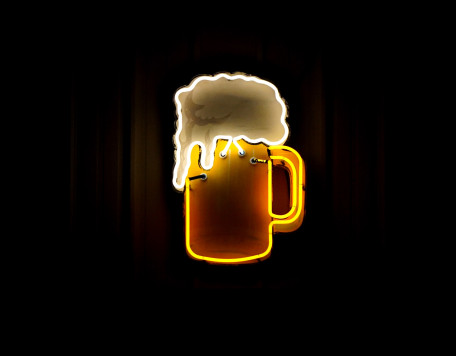© Pint of Science, 2025. Alle Rechte vorbehalten.
On the final day, we again have three exciting talks: on creating spacetime curvature in a lab, exploring neonatal sepsis in developing countries, and planning a sustainable future through scientific modeling.
The Universe in a Box: Creating Spacetime Curvature in the Lab
Dr Akbar Jafari
(Lecturer, Physikalisches Institut C, RWTH Aachen University)
Did you know that massive objects like stars and planets bend the fabric of spacetime? This mind-blowing idea, discovered by Einstein, changed how we see the universe. But here’s a question: Can we create this curved spacetime in a lab? The answer is yes—and we set out to achieve it in Aachen.
In this talk, I will take you on a journey into the world of electrons in solids and electric currents in circuits, where scientists are shaping their own version of spacetime. You will discover how we can mimic the cosmic dance of spacetime right here on Earth—and why it matters for the future of technology and science.
In this talk, I will take you on a journey into the world of electrons in solids and electric currents in circuits, where scientists are shaping their own version of spacetime. You will discover how we can mimic the cosmic dance of spacetime right here on Earth—and why it matters for the future of technology and science.
Exploring the role of dual players in neonatal intestinal infections
Dr Kaiyi Zhang
(Postdoc, Uniklinik, RWTH Aachen)
Salmonella enterica serovar Typhimurium (S. Tm.) is a leading cause of neonatal sepsis in developing countries, yet its behavior in neonates is still not fully understood. My research utilizes a unique neonatal murine infection model to explore striking age-dependent differences in how S. Tm. interacts with its host. Currently, my focus is on characterizing the two key players in this infection: the bacterial pathogen and the neonatal host.
If you’re curious about the role these dual players play in neonatal infection, join us at our Pint of Science event for more insights!
If you’re curious about the role these dual players play in neonatal infection, join us at our Pint of Science event for more insights!
How to plan an ‘optimal’ future
Stephan Bogs
(MSc computer sciences, RWTH University)
Capturing and transporting CO₂ for underground storage could help address climate change, but billion-euro investments raise questions about feasibility, support, and costs. This talk shows how scientific modeling evaluates these projects, guides optimal planning, and avoids unnecessary investments. Through mathematical optimization and real-world case studies, we provide policymakers with the tools for better decision-making for pursuing a more sustainable future.
© die Mitwirkenden OpenStreetMap
Weitere Veranstaltungen in FRANZ
2025-05-19
Microbe ecosystem, Arctic warming, and Temperature limits
FRANZ
Franzstr. 74 52064, Aachen, Deutschland
2025-05-20
Glowing cells in jellyfish, AI for social good, diseases and vaccines, and process mining
FRANZ
Franzstr. 74 52064, Aachen, Deutschland




